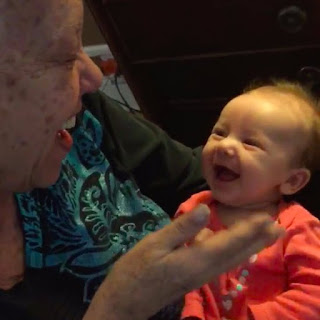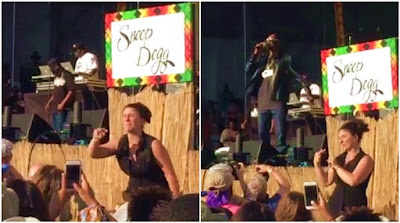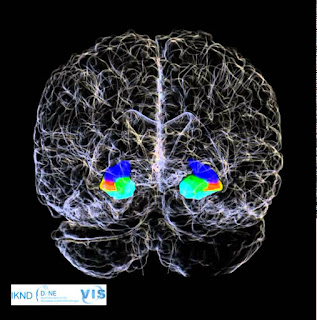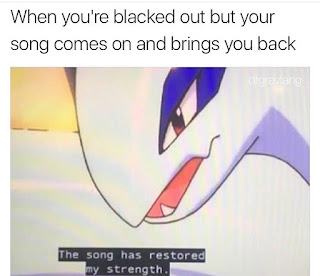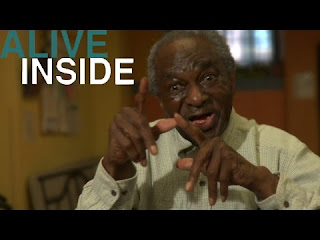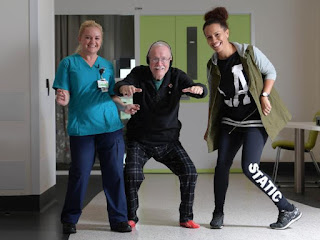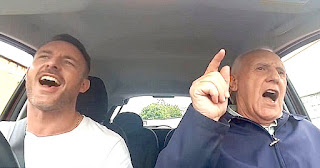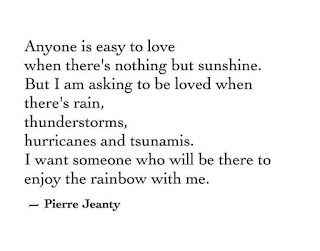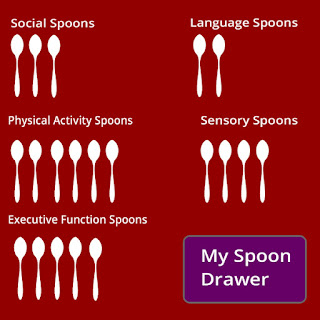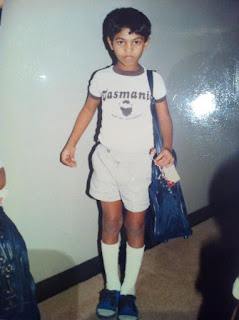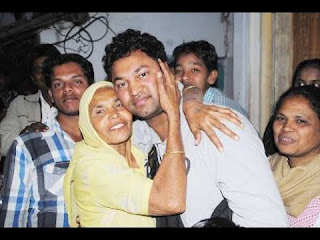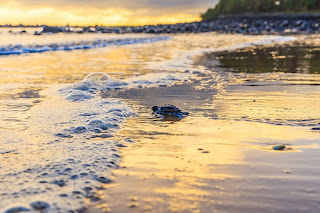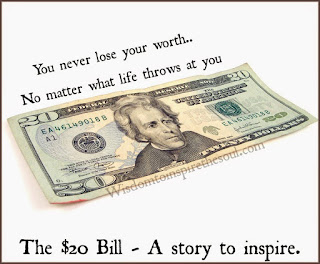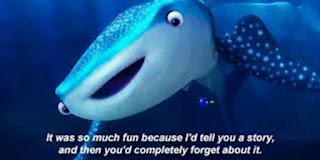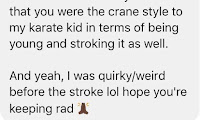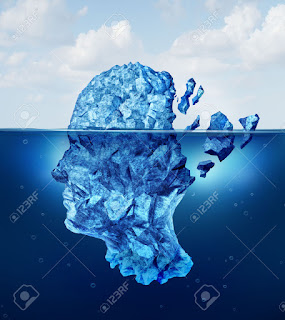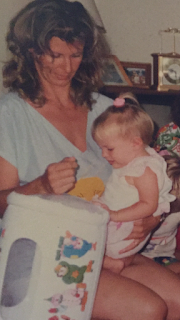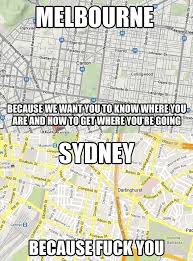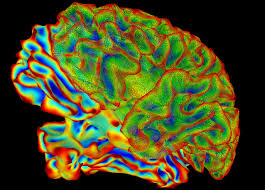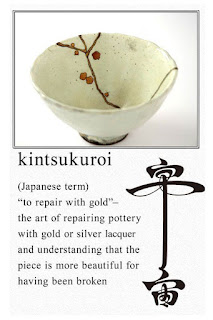"It is in the brain that the poppy is red, that the
apple is odorous, that the skylark sings"
- Irish playwright, novelist, essayist and poet, Oscar Wilde
(who - despite the longstanding rumours of a terminal STI - actually died as a result of an infection of the ear that had advanced to the brain),
knew the immense value of our sophisticated minds
21st Century =
Woman films herself as she is experiencing a stroke.
DO become familiar with what one may look like when suffering such an aggressive brain attack.
Please Note: A stroke can also strike and not show any physical symptoms
- every stroke sufferer's particular brain attack is unique, so it is not a time for comparisons.
In saying that, BE FAST can be used to promptly test whether a person is displaying the most common symptoms of stroke (adding to the original Act FAST mnemonic, balance & eyesight, which were indeed impacted by my first stroke in the brain's Occipital Lobe, in particular), where appropriate medical assistance can then be administered.
The ability to successfully execute BE FAST is now made more prevalent in Australia (in particular) with the introduction of Stroke Finder.
Stroke Finder involves a futuristic + innovative portable helmet used for prompt analysis that the clever ambos put on the patient the very moment they reach them, cutting down on crucial time that is often lost on the journey to hospital and in turn, saving sacred brain cells that would typically + otherwise perish, with swift + appropriate treatment there and then.
Boom!
apple is odorous, that the skylark sings"
- Irish playwright, novelist, essayist and poet, Oscar Wilde
(who - despite the longstanding rumours of a terminal STI - actually died as a result of an infection of the ear that had advanced to the brain),
knew the immense value of our sophisticated minds
21st Century =
Woman films herself as she is experiencing a stroke.
DO become familiar with what one may look like when suffering such an aggressive brain attack.
Please Note: A stroke can also strike and not show any physical symptoms
- every stroke sufferer's particular brain attack is unique, so it is not a time for comparisons.
In saying that, BE FAST can be used to promptly test whether a person is displaying the most common symptoms of stroke (adding to the original Act FAST mnemonic, balance & eyesight, which were indeed impacted by my first stroke in the brain's Occipital Lobe, in particular), where appropriate medical assistance can then be administered.
The ability to successfully execute BE FAST is now made more prevalent in Australia (in particular) with the introduction of Stroke Finder.
Stroke Finder involves a futuristic + innovative portable helmet used for prompt analysis that the clever ambos put on the patient the very moment they reach them, cutting down on crucial time that is often lost on the journey to hospital and in turn, saving sacred brain cells that would typically + otherwise perish, with swift + appropriate treatment there and then.
Boom!
Some Stroke Get The Blokes' readers (you legends!) with their active, advanced minds may ponder what ultimately keeps this two-time young (witty, passionate, honest etc. tehe) stroke survivor going despite such awful + alienating tragedy & loss in my youthful life? Hope. Hope that one day life will progress onward from what it has been the past five stagnate years during my (supposed) prime years to a far more promising and fruitful existence. Hope that the understanding, patience and love (+ humour) from others only continues to grow with time. Hope - it has got to be one of the most cherished attributes we have as human beings. Truly. Not too long ago, I was utterly engrossed in an intriguing article with the profound lesson that happiness is a life with meaning. That's it. Nodding away, as if I had been enchanted by such a profound revelation, I then pondered how some people have failed to grasp the extreme + ongoing isolation, challenges and losses I've struggled with head on since losing everything (and with it - the so-called purpose of my life) I had personally + proudly achieved by 26 years of age that memorable (even to a hippocampus-lacking Kitty Kat!) morning I 'simply' woke up with two strokes and irreversible + considerable brain damage to my name with no direct fault on my part officially identified by docs. Yet naïve, verbal critics (it seems most stroke survivors have them) suddenly regarded themselves as gifted neurologists (irrespective of their medical knowledge & experience with our most complex organ) that were basically living what I lived every single moment for years and who could understand exactly what I was going through, leading to them making harsh judgements on my own rehabilitation and newfound life and the attitude I should adopt (<<that is, according to ignorant ole them). Thankfully, my mind, damaged and all, is still mine and I have refused to be discombobulated by negative vibes encountered by remaining focused on my ultimate hopes + desires for the future. As it would eventually be acknowledged by various wise neuro specialists, there was nothing I could have particularly done to prevent my incredibly rare autoimmune disease nor diagnosing such a serious health concern before it brutally struck the mind's vital blood vessels (although most strokes can be prevented - be stroke smart). I certainly didn't get to choose the brain's lobes the nasty strokes killed sacred cells in (that would be quite an experience to pick such! If only), yet here I was, essentially a shell of my former self after losing billions upon billions of sacred neurons (<<remember the 'inner baboon' *in neuron count* I lost after the brain attacks?! Poor little lad #boybye), being forced to embrace the mammoth task of rebuilding my 26-year-old broken being with considerably less than what I started with if I truly wanted to live a life with meaning again. Hard bloody yakka!
Despite the gradual improvements in sacred cognitive function, healing of this sick Kitty certainly has not been linear nor has it been predictable - for anyone involved in this unique journey. Essentially, my life has been - and the lives of those closest to myself - so cruelly shattered by stroke and bleak ole Limbo has seemingly been my dreaded place of residence since 2012 - 5 years' worth of life (which is almost half of my prime adult years and still counting). Striking before I even reached 30 and caused by a rare + absolutely dreadful autoimmune disease (eventually deduced *not officially identified* in late 2012), I (in particular) could not have directly prevented nor previously identified such an aggressive disease which caused the awful brain attacks (according to the/my wise neurologist <he has the brains heyyy #nopunintended). Pretty unfair if I was to compare (<<poetry). However, the bottom line is that it actually doesn't matter what has been lost nor where I now go, so long as I continue to do just that - go. Kitty hot tip for all those struggling to live on. Just keep on moving onward and upward. One of the ways I do progress is with this reflective (witty) blog and also with being in the classroom now three (full!) days a week (not yet *<<operative word* as the classroom teacher - do watch this space, but please don't hold your breath hah!). Majoring in The Arts during my bachelor's degree in Education (long term memory was fortunately savoured from the two brain bombings), I'm all about using such, in particular, music (with good ole healthy humour, as you already can see with all my clever jokes, hey!), to help assist in Rehabilitation which I feel is alllmost as decent a medicine for my broken brain as all the steroids, occupational therapy and blood thinners constantly thrown my way. You also ought to get on board with therapeutic music and thought-provoking podcasts, in particular, for your own mental health. Yes!
Aussies sticking together while in London. Yes!
'Your class is still in luck because there's another Aussie in control'
(^^My former student - who was also an Aussie living in London - was referring to himself taking over boss duties of the class #blesshim)
Upon discovering I was most unwell and in hospital instead of back in our cosy classroom after our intended week-long half-term break (<<when I had the second stroke as I woke #poet), my darling year 4 class in G.B.'s well-connected & pristine Twickenham suburb were quick to send various forms of support (even chocolate!) to help lift my spirits.
Their unique, personalised words (brought to hospital by the ever-supportive colleagues - cheers!) were what transpired to be such cherished, soothing therapy (that I read constantly - even/especially when roused in the middle of the night while at hospital utterly confused about whether I was alive or dead, who I actually was and what the current date was + what was going on in the/my world) during such a ghastly experience for myself.
Thank you!
(^^especially this one with two comedic faves, Jerry Seinfeld & Alec Baldwin)
('Cup Of Jo' instantly makes one think of Curb Your Enthusiasm's Mocha Jo, riiiight)
Happier Therapy Chat
Shrink Rap Radio
British-born singer, Jessie J, 28, has had heart problems since she was a child, when she was diagnosed with Wolff-Parkinson-White syndrome, which can cause an irregular heartbeat. As my darling blog enthusiasts would know, an irregular heartbeat increases your chances of stroke (a staggering five fold) as the heart may not have a chance to properly empty itself of blood before being filled again. Such a concerning defect of the vital heart may then cause clots (that can and do travel through the bloodstream to the brain, where they may block the blood flow and thus, then limit the mind receiving oxygen, inducing stroke - four out of five strokes are considered ischemic *caused by a blockage - most likely a clot - in an artery*, in actual fact) and this is exactly what battered British singer + The Voice judge, Jessie J's youthful brain, when she was 18 years old.
Jessie J also reflects on how becoming aware of exactly what was going on + how significantly it would impact on her as a frightening ordeal and this is similar to what I too (eventually) experienced, where I honestly wished that I wasn't so informed (and yet, with the brain's gradual improvements over the years, I have become steadily + increasingly more aware). That's precisely when supportive Nurse Gilly (at St G's Hospital in London's Wandsworth borough) would proclaim that it meant my injured brain was progressing in its rehabilitation as initially I couldn't grasp the enormity of the situation.
What a true blue legend Gilly was (/is) focusing on the broken brain's progress achieved regardless of how minor it was!
Fortunately, awareness grew with every week
as the brain slowly yet surely improved, but I'd be lying if I told you that I understood the true extent of what had happened and its awful consequences even months later.
Let's call it a confronting mix of the substantial brain damage itself not being able to process information effectively due to no 'middle man' ala hippocampus (the mind is a renowned, award-winning 'memory sieve' when good ole hippo-c is killed, or at least compromised, when a person gets 'black-out drunk' - as I'm sure many can comprehend/relate #science) combined with myself being right in the 'thick of it' so not processing it all competently until the dust had eventually settled and I could then properly reflect.
Let's call it a confronting mix of the substantial brain damage itself not being able to process information effectively due to no 'middle man' ala hippocampus (the mind is a renowned, award-winning 'memory sieve' when good ole hippo-c is killed, or at least compromised, when a person gets 'black-out drunk' - as I'm sure many can comprehend/relate #science) combined with myself being right in the 'thick of it' so not processing it all competently until the dust had eventually settled and I could then properly reflect.
I hope you can relate and grasp such utter confusion and disregard to some degree (<<if you have your brain's hippocampus, you have better chance than myself in remembering what you just read to help you effectively digest the information + thus, comprehend!).
Jessie's reflection on the minor stroke she experienced certainly would have others who have also been so severely unwell relating to her ordeal -
"I thought that I was never going to get better"
Ah-ha, stroke sister.
Once your brain is able to properly process the dire situation, it honestly can feel like there is no silver lining to your grey, stroke cloud and you're just waiting for gloomy death to strike, but with time (almost five years now for this Special K) + the magnificent mind focusing on persistence, perseverance and puns (<<perhaps most importantly), the damaged brain is getting to a far more promising place where life is more colourful and the joy in still being alive, increasingly evident.
“You know, the weirdest thing is that being that sick made me Jessie J … I started writing songs because that was my get out of feeling unwell and down,”
- British singer, Jessie J, reflecting on the precious silver lining to one of her life's dark, stormy clouds which struck while in her teen years
So should I now be writing some soothing songs too, like an unwell Jessie J so creatively did?
A rad rap about how strokes get the blokes would definitely get you up, cutting shapes + therapeutic music ignites various parts of the brain, especially old seahorse mate, hippocampus, so it's more or less what the doc ordered!
Listening, playing, reading and creating music involves almost every area of your brain, illuminating the sub-cortical structures including the all-important brain stem, cerebellum and cochlear nuclei, in particular.
Totally addicted to bass!
Jessie J Discusses Her Stroke That Struck At 18
Totally addicted to bass!
Jessie J Discusses Her Stroke That Struck At 18
The brain's response to music, in particular, has always intrigued myself - it's one of the reasons I studied 'The Arts' as the major for my bachelor's degree in Education back in the day and have always striven to incorporate mystical music (of various genres and eras) in the classroom. Students making + performing raps - about the weather, body systems, times tables, whatever! - is a fave, with creating rhythm + beats to express themselves/information a close second and regular music being played for mind therapy sessions that help with mind-wandering and creativity is always a winner, as well - students take such soulful sessions more seriously than their teachers too, which is pretty adorable!.
Divine music is one of the few joys of our world that is universal and that in itself is truly magical.
You surely would also relate to the feel-good vibes that come rushing out of you through getting down when you hear an engaging tune. Music and rhythm, in particular, ignite your mind with their enchanted multi-sensory experience, affecting the brain's learning capacities and also assist in divine Neuroplasticity where the mind's auditory & motor cortex are increased in size.
Turn up the volume of this mesmerising mind medicine!
It came as no surprise to learn from some clever Finnish researchers (who used modern Argentinian tango music for their testing, in particular) that almost every area of your brain is firing all cylinders whether you are listening to, playing, reading or creating music.
Music seems to particularly benefit the limbic system (<<where my second stroke struck) which is the area of your mind responsible for
- this would surely make absolute sense to anyone who loves to put on some tunes to get the best out of themselves.
Boom! Shake the room!
A particularly captivating online vid of 'Say Something' being played
has the in-tune, magnificent mind of dear four-year-old Jackson (above) reacting with immense feelings of sadness + uncontrollable tears (do watch to see the beauty of our vulnerable brains in action) & it's all because of the scintillating science behind the moving tune 'striking a chord' (<<had to) with a person's sophisticated mind!
- a long-term memory + soothing song I recall hearing while at primary school + church in the 1990s that would make myself cry like a baby.
Still do get teary when it's played/blasted. It must be the science of music's fault, right?!
Have you discovered a special song that has the same effect?
That could very well be your brain's precious hippocampus saying 'g'day'!
Capture it, then share it with myself (and I'll share it with everyone - don't even mention it!).
Why Some People Experience More Intense Emotions When Listening To Music
Those who get 'the chills' have an enhanced ability to experience intense emotions
Below: This endearing clip will surely bring a tear to your eye -
Another tiny tot produces tears when their mummy sings
letting us know that their young brain is able to effectively process emotions, especially when stimulated by the astonishing aid of music.
In the words of the late (+ great) Aussie cricket legend, Richie Benaud, simply marvellous!
An Australian psychologist & neuroscientist (+ true blue guru), Kiralee Musgrove, has a passion for magical music, in particular, music neuroscience.
Here are her studies on Music & Cravings.
Definitely something to share with your captivated crew around the dinner table tonight!
*Please Note: Merely discussing such may bring on fierce food cravings.
Musicophilia
is quite the intriguing book by doctor, scientist + humanist, Dr. Oliver Sacks, to feed your glorious brain with about the mysteries of our advanced minds and their relationship with mesmerising music.
*I particularly appreciated Dr O.S.'s (Ozzie for short = honorary Aussie! You beauty!) labelling of our musical memories (showcased by repeating specific lines/verses/hooks on a continuous loop rather than seeing/singing it through) as 'earworms'.
He described such fascinating/frustrating earworms precisely as -
"the overwhelming, and at times, helpless, sensitivity of our brains to music".
Earworms
- discover the scintillating science behind why songs get stuck in your head and effective ways to combat the annoying little 'earworms' if ever you're a slave to the rhythm.
Musicophilia Book Review
By The New York Times
Why Some People Experience More Intense Emotions When Listening To Music
Those who get 'the chills' have an enhanced ability to experience intense emotions
Below: This endearing clip will surely bring a tear to your eye -
Another tiny tot produces tears when their mummy sings
letting us know that their young brain is able to effectively process emotions, especially when stimulated by the astonishing aid of music.
In the words of the late (+ great) Aussie cricket legend, Richie Benaud, simply marvellous!
An Australian psychologist & neuroscientist (+ true blue guru), Kiralee Musgrove, has a passion for magical music, in particular, music neuroscience.
Here are her studies on Music & Cravings.
Definitely something to share with your captivated crew around the dinner table tonight!
*Please Note: Merely discussing such may bring on fierce food cravings.
Musicophilia
is quite the intriguing book by doctor, scientist + humanist, Dr. Oliver Sacks, to feed your glorious brain with about the mysteries of our advanced minds and their relationship with mesmerising music.
*I particularly appreciated Dr O.S.'s (Ozzie for short = honorary Aussie! You beauty!) labelling of our musical memories (showcased by repeating specific lines/verses/hooks on a continuous loop rather than seeing/singing it through) as 'earworms'.
He described such fascinating/frustrating earworms precisely as -
"the overwhelming, and at times, helpless, sensitivity of our brains to music".
Earworms
- discover the scintillating science behind why songs get stuck in your head and effective ways to combat the annoying little 'earworms' if ever you're a slave to the rhythm.
Musicophilia Book Review
By The New York Times
Open your mind with this extraordinary story of three clever Aussie lads (below) who use therapeutic, magical music to highlight their true selves and not the Tourette Syndrome that can overtake their own + cherished identities.

"They're three extraordinary Aussie boys who are overcoming Tourette Syndrome through music.
See how their incredible mateship is breaking down barriers".
YES!
Below:
A must-see advertisement that shows the blessed beauty of music connecting with our multifaceted minds
The unique ad (still frame - above) has got to be one of the best + thought-provoking ads of recent times.
I'm not crying - you are!
#brogoals
Snoop Dogg's Energetic Sign Language Interpreter Steals The Show
Do WATCH - it truly is such a delightful sight.
What a legend!
Situated deep in the brain is the minute hippocampus, a vital part to your being.
What is the function of the brain's hippocampus?
The hippocampus:
*is responsible for new memory creation & retention
*involved in processing and expressing music
*assists us to orientate ourselves in our various surroundings
*facilitates our ability to navigate and find our way around when out in the 'real world' (spatial navigation)
*generates new brain cells
The hippocampus:
*is responsible for new memory creation & retention
*involved in processing and expressing music
*assists us to orientate ourselves in our various surroundings
*facilitates our ability to navigate and find our way around when out in the 'real world' (spatial navigation)
*generates new brain cells
Injury to the brain's hippocampus may affect:
*new memory creation
*new memory retention
*mood
*disorientation
*new memory creation
*new memory retention
*mood
*disorientation
The hippocampus (highlighted dark green in the centre of brain diagram, above), located in the brain's medial temporal lobe (ah, of course! See its precise location within the brain in diagram, below), is hypersensitive to oxygen loss or lower blood flow in the case of a brain injury, hence my second stroke striking such an insignificant spot (physically speaking) deep within the brain as I woke one day during an otherwise relaxed week off teaching while on my school's half-term break in October 2012 with an as-yet-to-be-diagnosed rare autoimmune disease that (presumably) inflamed my blood vessels (in an attempt to protect my rundown being, indirectly causing stroke instead, due to a lack of oxygen being fed through the compromised blood vessels throughout the brain) at just 26 years of age.
It may not surprise those who have noticed the concerning, forgetful effects from drinking excessive amounts of alcohol to learn that such 'blackouts' (that can last between a few minutes to hours) are due to the brain's hippocampus (highlighted in the brain diagram in blue, above) being 'hit for six' by boisterous booze.
There's credible, researched science (<<perhaps by drunk scientists just doing their 'case study'/job) behind such.
No doubt you were thoughtfully trying to live a day in the life of this Kitty Kat when having a quality boozy bender, you endearing + empathetic enigmas!
The intriguing human brain's crucial Limbic System (amygdala, hippocampus, thalamus, hypothalamus, basal ganglia and cingulate gyrus, highlighted in the brain image, above) is small, yet fierce in its various functions and it is incredibly valued to our sophisticated, advanced beings, in particular, learning and development.
This Kitty surely can (now) vouch for such.
Many years of confronting - yet social (<<you know what I'm like) - sessions at (outpatient) occupational therapy were spent (re)learning basic abilities we generally take for granted such as walking to a nearby café just around the corner, appropriately interacting with the café staff
and ordering for myself + doting OT what we both precisely wanted (then trying to direct our way back to the nearby rehabilitation block at the hospital merely a few minutes later = hard yakka when your mind has a dead hippocampus).
Such (at times, draining) therapy that tested spatial navigation + memory, understanding non-verbal cues and recognising what was new vs what was familiar was quite the challenge (I was well aware that it should not be which was the worst aspect - anxiety central!) and although I certainly did not improve overnight, the general progression in my abilities and demeanour has meant I appreciate the advanced human brain more than ever.
Just look at the magnificent mind go - with or without you, Hippo-C!
Just look at the magnificent mind go - with or without you, Hippo-C!
Neuroplasticity, go you good thing!
Learn all about your mind's 'seahorse', the ole musical mate,
*The Hippocampus - 'Coming Soon'
= Wishful thinking in my brain (forever) damaged case!
'The song has restored my strength'
= we have our mind's musically-inclined hippocampus to thank for that
(and you also can give credit to the brain's hippocampus when you get 'blackout drunk' during such 'revitalising' sessions that restore said strength with the decent beats #sciencesfaultnotyours)
- An alternative interpretation of the renowned 'Mozart Effect'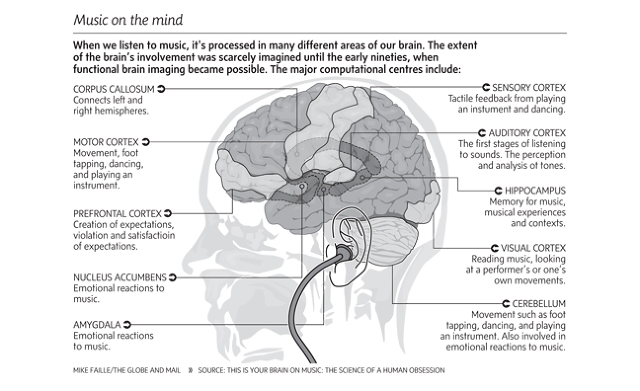

- Be prepared to be mesmerised (more so) by music
This intriguing documentary
about orphaned, injured and/or blind, endangered Asian elephants at a Thai sanctuary (on the shores of Thailand's River Kwai) that are brought to life through music is guaranteed to move you more than an elephant when they see a mouse!
about orphaned, injured and/or blind, endangered Asian elephants at a Thai sanctuary (on the shores of Thailand's River Kwai) that are brought to life through music is guaranteed to move you more than an elephant when they see a mouse!
Who knew such mammoth mammals have quite the special bond and fascination with harmonic tunes?
You even get to see the gentle giants curl their trunks, 'trumpet' and sway away in sheer bliss due to the enthralling effects of magical music on their magnificent minds.
...But can they rap a funk about their trunk?
Check out these Barbar-esque beauties - perhaps you could also bring the feel-good tunes to the gentle giants in Thailand!
Not to be outdone themselves, bright birds also enjoy basking in therapeutic 'pet sounds'.
Scientists have even confirmed the chirping aves certainly do have rhythm!
Do watch the rhythmic soarer cavort - it will undoubtedly make you smile from ear to ear!
Hey mate!
The Internet can be oh-so-beautiful.
Finding such heart-warming stories of truly remarkable beings (& animals ^^) just makes my heart flutter!
No doubt you feel the same way, so do engross yourself in the intriguing story of an endearing, elderly chap named Henry (below) who suffers from Alzheimer's disease (which hits the memory-forming, emotions-controlling + spatial-navigating hippocampus straight-up in its aggressive attack of the brain's sacred cells = one certainly feels a strong loss in understanding their own identity and the world as it is now - take it from this Kitty Kat!).
You will surely take immense delight in seeing Henry's tender mind awaken (and that of others) with the assistance of some therapeutic tunes, which ultimately helps to make one feel reconnected to our world.
No doubt you feel the same way, so do engross yourself in the intriguing story of an endearing, elderly chap named Henry (below) who suffers from Alzheimer's disease (which hits the memory-forming, emotions-controlling + spatial-navigating hippocampus straight-up in its aggressive attack of the brain's sacred cells = one certainly feels a strong loss in understanding their own identity and the world as it is now - take it from this Kitty Kat!).
You will surely take immense delight in seeing Henry's tender mind awaken (and that of others) with the assistance of some therapeutic tunes, which ultimately helps to make one feel reconnected to our world.
The fascinating 2014 documentary, Alive Inside, shines a light on
Henry (above),
who has Alzheimer's disease, absolutely adores his music as it brings him to life -
"We first see Henry, inert, maybe depressed, unresponsive and almost un-alive... Then he is given an iPod containing his favourite music...And immediately he lights up, his face assumes expression, his eyes open wide, he starts to sing, rock and move his arms and he's being animated by the music.
He's restored himself. He's remembered who he is. He's acquired his identity for a while through the power of music".
A must-see magical story.
who has Alzheimer's disease, absolutely adores his music as it brings him to life -
"We first see Henry, inert, maybe depressed, unresponsive and almost un-alive... Then he is given an iPod containing his favourite music...And immediately he lights up, his face assumes expression, his eyes open wide, he starts to sing, rock and move his arms and he's being animated by the music.
He's restored himself. He's remembered who he is. He's acquired his identity for a while through the power of music".
A must-see magical story.
Sydney's Blacktown Hospital Embraces Music To Help Dementia Patients Feel Alive Again
^^Guaranteed to be one of the best news articles you feast your eyes on this week!
The "King" of Blacktown Hospital, John "Sean" O'Malley (above), loves to get down to Elvis The Pelvis!
"Music makes all of your brain light up,"
clinical nurse consultant Ms Conciatore said,
"but when you get a response like Sean, it's amazing. This is the most alert and alive I have seen him and all for the cost of an iPod."
"Music makes all of your brain light up,"
clinical nurse consultant Ms Conciatore said,
"but when you get a response like Sean, it's amazing. This is the most alert and alive I have seen him and all for the cost of an iPod."
Check out these other smart lads (below) who are also utilising the blessed magic of music to rekindle the strong bond they share.
- Ted McDermott's supportive son, Simon (in action with the patriarch, above, and having a good ole selfie with his dear pa, below), feels he gets his dad back during such moving (<<pun intended hehe!) sessions.
Carpool Karaoke at its finest.
Beautiful brains!
Clever cuties using their minds' mutual strengths to bring joy & purpose
to an otherwise devastating situation.
Here's to you both, Simon & Ted!
Clever cuties using their minds' mutual strengths to bring joy & purpose
to an otherwise devastating situation.
Here's to you both, Simon & Ted!
(^^ if you want to be inspired then do watch this exceptional Aussie film that shines a light on the extraordinary relationship between a mother *whose name is Kitty = obviously a true blue legend!* and her son *Tin, another legend* - after she suffers a stroke - as they fight through the newfound + complex journey as struggling survivor & considerate carer).
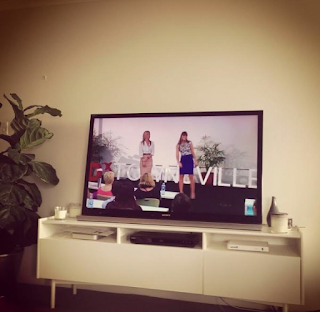 Jack Attack (above right), the compassionate + mighty entertaining (she was obviously performing some impressive MJ dance moves during our 2015 TEDx Talk when supportive mates - who were live streaming the curiosity-themed event - captured their vision, above) younger sister, has (along with dear Mother Duck) fortunately been (for myself - young stroke survivors are not always assisted by their loved ones, often feeling abandoned by family, friends + society) a constant + graceful *volunteer* carer/PA (+TEDx companion) throughout the challenging past lustrum. Cheers Jacky Jacky! |
Understand some of the hidden + complex issues of such cruel brain attacks and you'll undoubtedly become a more impressive stroke smart sort.
Australia's wise ole broadcaster, SBS, has recently helped educate society about the hidden injury that stroke can be
- do have a gander so that you are more able to effectively grasp the daily, constant struggles experienced/embraced by some stroke survivors - young and old, temporary or permanent.
A truly eye-opening + concerning article highlighting the current discrepancy between how society tends to treat those who have a physical illness vs those who have a mental illness
(shockingly, even some working in the medical field struggle to appropriately treat those with mental illnesses #leadahorsetowaterbutyoucantmakethemdrinkit).
'If we could change ourselves, the tendencies in the world would also change'
- old mate, Gandhi, style.
As part of the various forms of entertainment/education that have helped myself on this grand quest for brain enlightenment, prior to 2012's dual strokes, I always had an intriguing book or two by my bed to read before going to sleep + also whenever time permitted (like a typical adult!), but after Stroke 2, I initially was unable to generally follow what I was reading given extent of short term memory deficit so naturally I lost interest + was also cruelly reminded of just how inefficient my numbed noggin had instantly become so avoided such a raw confrontation for years. Fortunately, clever podcasts are fast becoming a favourite of mine (finally - can be just like my dear buddies in the 21st Century!) and films, in the simple comedy form, have only just crept back into my life although they currently (<<operative word) need to be rather basic story lines (see ya later on, multi-layered thrillers!) as I can get awfully lost and confused by all the information quickly thrown my way without efficient memory retention (to actively take memory-assisting notes during a movie would be missing the point of watching such - of course I've considered it :)). The sophistication of literature present in my life is certainly improving with every year since the last brain injury which is a true delight to regain (I particularly love reading all about the complex mind, no surprises there being a primary school teacher) and I'm confident the brain will sooooooon be back to its old literary ways. You may not have realised the vast extent you need your refined mind's (short-term) memory before mine was so cruelly killed off, amiright? Please do enjoy your extensive + advanced peruse tonight in my honour!
"The important thing in life is not the triumph, but the struggle; the essential thing is not to have conquered but to have fought well"
- French educationalist and historian, Pierre baron de Coubertin, who was also the founder of the International Olympic Committee and is considered as the father of the modern Olympic Games, certainly was a noble + wise life guru.
Below: Day One of Stroke (Take One) Rehabilitation - a fierce 'Kat Fight' well and truly underway.
Reow!
Offering an encouraging thumbs-up (in some decent get-up made to wear during the various surgeries + examinations regularly performed while vacaying it up at hospital #freebies) to my dear supporters whom I was fortunately able to keep in regular contact with courtesy of the sophisticated smart phone (<<my sanity saviour - seriously). Little did I know at the time that a second, far more debilitating, stroke was hiding in the shadows like a massive creep and would strike just three months later due to the (as-yet unidentified + vicious) autoimmune disease again flaring up my 26-year-old tender mind's blood vessels.
Reow!
Offering an encouraging thumbs-up (in some decent get-up made to wear during the various surgeries + examinations regularly performed while vacaying it up at hospital #freebies) to my dear supporters whom I was fortunately able to keep in regular contact with courtesy of the sophisticated smart phone (<<my sanity saviour - seriously). Little did I know at the time that a second, far more debilitating, stroke was hiding in the shadows like a massive creep and would strike just three months later due to the (as-yet unidentified + vicious) autoimmune disease again flaring up my 26-year-old tender mind's blood vessels.
**Let's blame the 50% vision loss caused by the Occipital Lobe's stroke for such dodgy angling of this particular selfie.
'My left stroke just went viral. Right stroke put lil' baby in a spiral'
- American rapper, Kendrick Lamar, shares my initials annnd experiences. We are basically twins!
Neuro Ward Selfie Goals
(Even better than Ellen D.G's renowned one at the Academy Awards, riiiiiiight?!)
Richmond Upon Thames Borough, U.K.
July 2012
For those who may be struggling to grasp my particular smorgasbord of daily challenges that constantly impact on my life (as a young stroke survivor with severe + lingering effects and by-products of such - the majority of which you physically cannot simply identify/grasp) caused by severe short term memory loss (where I still hold the prestigious #1 Anterograde Amnesia Champion title with my extensive medical team/fans! You know how it is - forever kicking goals and being a celebrated winner!), sheer fatigue, extreme lack of spatial navigation, intense and overwhelming sensations of helplessness, worthlessness and confusion at times (including initially acquiring a confronting + severe identity crisis and also presuming I was dead or at the very least, in a coma, in particular) + the range of physical ailments (loss of RHS vision + RHS balance and strength + sensation, for instance) 'assigned' (to put it lightly) to myself from simply waking up one typical morning (with now two significant cerebrovascular accidents caused by a previously undetected + incredibly rare autoimmune disease that was eventually acknowledged as unpreventable and a formerly considered 'low risk of stroke' status), I ask them to consider the insightful Spoon Theory (<<by Christine Miserandino who has Lupus). It describes when you are young + healthy, you have the luxury (and it truly is a luxury, remember that *says me!*) to make choices - such are reasonably (and comparatively) simple to do - you also have the freedom (no need for constant assistance, advanced forward planning and/or thoughtful invitations from considerate peers!) + energy to consider the extensive range of the various options and not have to make too many drastic alterations to your daily experiences to successfully execute your desires (like someone who is unwell has to constantly do) - an endless supply of possibilities - and one of the leading aspects of being healthy is that you don't have to continually worry about the various logistics + consequences of your every action (no doubt typical working-age adults haven't even considered such a confronting + restricting element). As it stands, 'restricted possibilities' is my life now at just 31 years of age (which started, technically speaking, when I was only 26 *1/3 of my adult life and still counting* as I simply woke for the relaxing day off work ahead) and having to constantly think about my every action is cruelly stealing the entire 'spoon set' of my deserved happiness + life's freedom that I once so blissfully (and ignorantly) had in my power (like the vast majority of fellow young peers surrounding myself) - and swiftly lost when I had absolutely no choice nor control in the matter.
What a time to be young, right?! Here's to hope!
The main shift that took place post strokes (in the above article) was participants moving out of a diverse network of mates into a family-based one -
a confronting by-product of stroke which has been one of the most challenging aspects of Stroke Rehabilitation that started when I was merely 26 years of age.
Otherwise known as the prime time of your life.
Such isolation from social connection and involvement during one's otherwise thriving years is a more traumatising and alienating ordeal than you may initially regard, so do be a sincere, consistent + considerate friend indeed to a friend in need today.
Reflecting on the past five tortuous years, if only my brain had let myself celebrate glorious youth and knowing exactly who I was in this big, bad world - my genuine identity (<<this was tragically lost for years!) - for just that little bit longer (in part, why I absolutely adore being in the classroom - forever young!). If you still find yourself struggling to understand where a young person who has been considerably unwell is coming from with their constant dose of agonising struggles, restrictions and loss over the course of many years where many now define us by our newfound disabilities (please don't), then do engross yourself in the captivating concept of The Spoon Theory (aka My Spoon Drawer, below). Being unwell to the extent and circumstances I have been dealt is not so simple to grasp when you only look at the surface. Old mate, Confucius, hit the nail on the head with, 'ignorance is the night of the mind, but a night without moon and star'.
The recent award-winning film, Lion, shows the sheer skill of a 5-year-old boy's hippocampus (our brain's epicentre for spatial navigation + memory) that ultimately led to the little lad (Saroo Brierley) successfully tracking down his family, over two decades after he accidentally fell asleep on a train in rural India in the nation's centre and woke up 1600 km away from his home (not that he knew this vast distance/hurdle between their eventual reunion initially as a youngster) in the sprawling megacity of Kolkata (no doubt you have been terrified of the unknown when entering an unfamiliar city *now just imagine being lost and alone in an unfamiliar mega one as a five-year-old child!*, yet we are fortunate enough to be considered as aware adults with finely tuned minds + equipped with technology & assistance galore).
So how did switched-on Saroo eventually find his childhood home - last seen in the 1980s - 25 years later as a grown adult?
With considerable time and sheer tenacity proactively searching online, together with the assistance of the sophisticated + thorough Google Maps (see above) and the brain's sacred & shining hippocampus boldly leading the complex, extensive mission by precisely recalling landmarks, environment and people of his childhood home.
With considerable time and sheer tenacity proactively searching online, together with the assistance of the sophisticated + thorough Google Maps (see above) and the brain's sacred & shining hippocampus boldly leading the complex, extensive mission by precisely recalling landmarks, environment and people of his childhood home.
Learn all about this clever tiny tot (as shown above when he was eventually adopted by a supportive Tasmanian couple Down Under after becoming lost in India's Kolkata in the '80s) who is now a grown man (see below) via his very own website.
All the rad kids are doing them!
Spoiler Alert: The 25-year-long search eventually came to an end with the most remarkable reunion between dear mother and her long-lost son (above).
Incredible + adorable.
Take a wild guess at what type of living thing has one of the most impressive brains for their memory retention + spatial navigation abilities.
(+ definitely proficient Saroo Brierley, above, in a past life).
(+ definitely proficient Saroo Brierley, above, in a past life).
You may already be aware that elegant elephants are renowned for their sophisticated memory retention abilities and that clever homing pigeons can use sound waves - infrared waves, in particular - to help effectively navigate their precise route all the way back to their home after going for a little 'flyabout' (<<the noble pigeon version of going 'walkabout'), but the animals that will really knock your socks off are the cute, lesser known, tiny turtles that set off as fearless hatchlings into the world's vast oceans only to return years later to that exact, otherwise insignificant, beach (!!!) where they then lay their own eggs as well much later in life when they are themselves adult turtles.
What are the odds in this big, bad world without so much as a handy compass or helpful smart phone to assist such calm cuties?
What are the odds in this big, bad world without so much as a handy compass or helpful smart phone to assist such calm cuties?
Pretty likely if you are clever ole Loggerhead sea turtle!
#Kittybraingoals.
What is the actual science behind such?
It's all about the in-tune turtles sensing their own latitude and longitude (not as easy as old mate, Google Maps, makes it seem!) to create an 'internal compass' through invisible lines of the Earth's magnetic field and giving their own little 'signature' (heh the way dogs ever so considerately leave theirs on trees?!) to each coastline they visit, including the very first one they embraced as teeny weeny hatchlings.
This baby loggerhead turtle (above) is making its grand entrance to the vast open waters of our world, yet little does mini mate know that their busy brain is in the midst of sorting out their exact bearings and efficiently lodging such for future endeavours many years down the (ocean) track.
While stroke survivors can feel figuratively lost, they can also become literally lost from the confronting effects of brain damage.
Having two decent strokes kill billions of quality brain cells, I indeed have felt lost both figuratively and literally, which has shown to be quite difficult for some to comprehend (i.e.: 'she looks so 'normal' and her engaging yarn was like a 'normal person' so how could she get completely lost when just in a house? Why can't she just go places by herself?').
Thank you to all who have kindly come to my rescue and taken it in their stride.
Being in my company as a result of the rescue mission was my humble gift to you (& you're most welcome).
Take it from this hippocampus-lacking young stroke survivor, finding your way around is a truly valued + advanced trait to have as a living thing - just ask old mate, Shelly (<< haha! Geddit?!), above.
Simply magical!
What impressive widdle creatures that certainly surpass old exploring mate, Captain Cook (although on par with those clever & renowned London cabbies with their minds' hippocampus firing all cylinders when relying on their exquisite spatial memory to recall all of London's spaghetti streets without outside assistance such as technology + also vibing with the young & talented sailor, 2011's Young Australian Of The Year, Jessica Watson)!
(*unless you have significant brain damage to the mind's 'memory reception', hippocampus, then you'll forget almost everything! Still gotta have a go :))
If multi-award winning Australian actor and all-round top bloke, Hugh Jackman, was an animal (and you almost certainly have been pondering such an abstract thought yourself), he may just be a (multi-talented, ever-endearing) loggerhead turtle as such a decent lad has quite the remarkable memory bank!
Recently, Hugh was being interviewed at a movie premiere in London which is a pretty standard and run-of-the-mill job requirement for an actor that has been in the business since the '90s.
The ultimate clincher that makes Mr Jackman definitely vibe loggerhead turtle tendencies is that despite talking to countless interviewers (+ people, in general) all around the world over the years & the substantial time of two decades between being in each other's company, HJ was still able to recall that one particular interviewer was, in fact, one of his past students from a British school (when Jacko was briefly a teacher = he can do no wrong), even referring to Rollo, by his unique ole name, without any outside prompt/assistance and also referencing Rollo's particular efforts while in Jackman's class all those decades ago.
What an extraordinary loggerhead-turtle-legend Hugh Jackman certainly is!
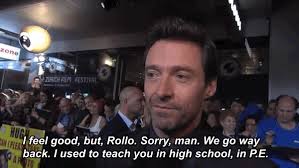
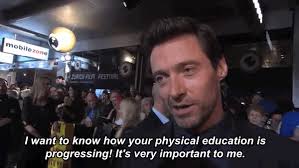
Recently, Hugh was being interviewed at a movie premiere in London which is a pretty standard and run-of-the-mill job requirement for an actor that has been in the business since the '90s.
The ultimate clincher that makes Mr Jackman definitely vibe loggerhead turtle tendencies is that despite talking to countless interviewers (+ people, in general) all around the world over the years & the substantial time of two decades between being in each other's company, HJ was still able to recall that one particular interviewer was, in fact, one of his past students from a British school (when Jacko was briefly a teacher = he can do no wrong), even referring to Rollo, by his unique ole name, without any outside prompt/assistance and also referencing Rollo's particular efforts while in Jackman's class all those decades ago.
What an extraordinary loggerhead-turtle-legend Hugh Jackman certainly is!


Do watch this splendid reunion
(courtesy of the mystifying magic of the mind and its astounding memory retaining abilities) as it unfolded - your cheeks will hurt from smiling so much at the extraordinary memory retention of darling Hugh (+ his former student's mind power too)!
Stroke App Created By University Of Queensland Student
(courtesy of the mystifying magic of the mind and its astounding memory retaining abilities) as it unfolded - your cheeks will hurt from smiling so much at the extraordinary memory retention of darling Hugh (+ his former student's mind power too)!
Stroke App Created By University Of Queensland Student
#prettybigdeal
UQ School of Health and Rehabilitation Sciences’
Associate Professor Louise Gustafsson -
"We hope to find an effective way to assist mild stroke survivors to maximise their life roles and activities after stroke...
This research is unique in that we are providing an intervention that includes regular telephone contact and follow-up from a health professional and aims to support people with mild stroke to manage their symptoms, physical and psycho-social consequences and rehabilitation needs and improve their lifestyle after discharge from acute care...
These projects will help to improve the patient journey for people with stroke."
A truly fascinating 2016 University Of Technology Sydney thought-provoking chitty chat for you to also engross yourself in -
Broken Brains Breaking Hearts
(^^title = don't I know it?! #strokesgettheblokes)
(^^title = don't I know it?! #strokesgettheblokes)
Beyond the stroke and its permanent dead brain (/'cerebral infarction' if you want to be fancy), there are other factors of a stroke survivor's updated life in the cruel aftermath to consider.
One of these confronting factors is that we have to grieve the loss of our former selves and accept the new normal.
This is not necessarily in a set order nor about returning to where we once were, but it is essential in order to then embark on a new worthwhile, meaningful life, full of empowerment, security, self-esteem and purpose.
Be kind, patient, considerate, understanding and loving (+ witty!) to a stroke survivor whose vast struggles (temporary and/or permanent) are considerably more than meets the eye.
Fellow stroke sufferer + psychiatrist, Elizabeth Kübler-Ross's enlightening model -
1. Denial & Isolation
2. Anger
3. Bargaining
4. Depression
5. Acceptance
6. Guilt
7. Ambivalence
7. Ambivalence
8. Frustration
Throughout each stage, a common thread of hope emerges:
Where there is life, there is hope.
A few severe strokes while in your otherwise thriving 20s, cruelly stripping you of every single thing that you previously had so proudly achieved - which had ultimately made you feel secure, purposeful and valued - does not have to mean you've reached the ultimate 'dead end' to your life's sacred journey.
Rather, it can be the glistening 'fork in the road', where you (with progress, support and good ole time) decide which direction you're going to take and embrace such a brave choice by taking control of your life with what little you have left through sheer perseverance, focus and good ole humour.
But first, selfie!
Berlin, Germany
Berlin, Germany
If you haven't already, then do familiarise yourself with such an insightful analogy about your ultimate self worth and why holding such, regardless of situational circumstances, is paramount to your life's journey
#perspective.
*We weren't really friends to begin with.
*You're so strong and brave, I don't know how you do it.
*It must be so hard!
*I discovered this person fully recovered.
*You seem fine to me.
*Maybe you're not trying hard enough (you're lazy).
*You're such a grump!
*How many times do I have to tell you?
*Do you have any idea how much I do for you?
*You need to stop thinking so negatively; it's your attitude. When life gives you lemons, you've just got to make the most of it
(that's not the proverbial phrase + this ignorant judgement, in particular, makes no sense and its ultimate purpose is clearly to feed the poisoned ego of the feeble person so callously saying it).
*You look the same, I can't even tell!
*You're basically 'normal'.
*I'm too busy with other people & events to see you, I have priorities.
*You really need to go talk to someone professional about the way you just spoke to me (when I treated you with no regard). Promise me you will. I'm really worried about you.
*You're lucky to be alive.
It's disheartening to accept that these brash + ignorant and somewhat callous + obnoxious remarks/'microagressions' (including some courtesy of other splendid stroke survivor blogs such as Training For A Marathon) have in fact been said to myself and fellow stroke survivors - during a truly traumatic time (that, according to knowledgeable medical experts, was not self-inflicted and was unavoidable, in my particular case and in various other stroke sufferers' cases, as well) in our young lives when some of us feel such a vast, distressing loss (I still do, a quinquennium on) that is a constant, intense struggle to simply live on despite the confronting + extreme situation forced upon us.
Upon objective reflection, how did those who have said such hurtful, ignorant comments think they were being in any way helpful, kind or compassionate to someone who is struggling to continue on after such immense + heartbreaking tragedy & loss in their young life?
When will it stop?
Proactive blogging, TEDx, vocal + sincere supporters and the usual engaging Chitty Chat have definitely shown to help in shifting the perception & treatment of young stroke survivors and I am pleased to report that it is improving in my particular world, but it still has a tremendous way to go.
We're still here and we're still us.
Yes!
Stroke survivors need to be as considered, included, respected and celebrated as much as everyone else.
The most supportive people are those who never think of us as poor, pathetic stroke sufferers who are now broken and/or desperately needing a cure to make them a worthwhile citizen again, but rather, someone they still value, consider and respect.
This is who we are and it ought to be accepted + embraced.

The invigorating message (above) that lit up my phone (+ face) from one of the dear pumps is a perfect example of how you should treat a stroke survivor.
Even/especially if we give up on ourselves.
What a pumping extraordinaire with all that renowned dynamic flair!
Inclusive Pixar film, Finding Dory, has its own version of such a superstar of a mate, Nim, with Destiny, the supportive, sincere + optimistic whale shark, who looks for the positives to any situation (in particular, the perks of having a mate with short term memory loss #toomanytolist), no matter how devastating it may be (above).
*Finding Dory also includes a unique ole beluga whale (called Bailey) that has previously suffered a traumatic head injury (claiming his head is now 'swollen' from the injury and not from genes which may very well be the case - nonetheless, it's a rather funny scene!) who ends up using his unique brain and its special abilities to (spoiler alert) save the day.
Amazing, indeed, Bailey Beluga!
Embrace it today.
Below: A little teaser for you of just what encouraging empathy can resemble.

....
Recently, someone I have never actually met before wrote this touching message (above), yet there are people I had known (and I was considered to be close with) for years - some well over a decade - prior to strokes that I'm still waiting on to communicate such considerate, empowering and supportive words during this challenging, continuing chapter that has struck while in my (otherwise) peak years of life.
The extraordinary person behind such kind sympathy and encouragement is someone the world certainly needs more of.
And yep, I'm still keeping rad, just for you, old mate
(*'old mate' is a common Australian colloquialism used to refer to our old mates *of course* + also, relative strangers #makessense).
Thank you!
Other newfound mates whom I had met briefly during recent blood-thinning medicinal sessions (<<for the brain #strokesmart) and obviously chewed their ears off about strokes (hopefully commending them on having a glass of stroke smart red wine) also had some selfless words of encouragement to send my way (below).


+
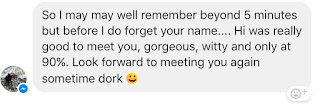
*Special mention goes to the sneaky negs thrown in there #imaywellremember #lookforwardtomeetingyouagainsometimedork
- well done!
It has truly been fascinating the way individual people have reacted to this heartbreaking chapter and the particular attitude I've adopted in the strokes' wake (it's ultimately a reflection of them and not the person who is unwell).
I'm confident other stroke survivors have noticed that there are those glistening gems pumping you up when you need it (like the new besties, for instance, above) and there are also some deplorable dregs who (strive to) use you and the opportunity strokes and their vulnerable aftermath can present to selfishly + cruelly vacuum out your vitality, belief & drive - even your confidence - for their own benefit regardless of how you handle your (<<operative word) rehabilitation journey, taking any opportunity or sign of weakness they can see to (attempt to) bring you down (and no one should ever give someone advice/'microagressions' on how they 'should be' handling their health's particular rehabilitation unless invited and even then, should tread carefully when making assumptions + judgements about the complex 'Stroke Rehab Iceberg') in order to get their 'fix'.
I'm confident other stroke survivors have noticed that there are those glistening gems pumping you up when you need it (like the new besties, for instance, above) and there are also some deplorable dregs who (strive to) use you and the opportunity strokes and their vulnerable aftermath can present to selfishly + cruelly vacuum out your vitality, belief & drive - even your confidence - for their own benefit regardless of how you handle your (<<operative word) rehabilitation journey, taking any opportunity or sign of weakness they can see to (attempt to) bring you down (and no one should ever give someone advice/'microagressions' on how they 'should be' handling their health's particular rehabilitation unless invited and even then, should tread carefully when making assumptions + judgements about the complex 'Stroke Rehab Iceberg') in order to get their 'fix'.
Avoid these dirty drains like the plague - no good can ever come from them.
Above:
Stroke Rehab Iceberg
- it's more than meets the eye
1) Invalidation
2) Assumption of Inferiority
2) Assumption of Inferiority
3) Fear of Mental Illness
4) Shaming of Mental Illness
5) 'Second Class Citizen' Attitudes
Do have a peruse of such an insightful & thought-provoking article.
Bravo to you, Dr Frank, for creating such an honest + eye-opening list.
Bravo to you, Dr Frank, for creating such an honest + eye-opening list.
Education certainly is key.
Be the change you want to see in the world is my current mantra, wise Dr MAF.
Still think strokes are only meant to happen to the overweight, considerably unwell, injured and/or elderly?
While dear Mother Duck and I (pictured below - photo taken just the other day #dontarguewithmymemoryandconceptoftime #topknotpioneer) look like healthy spring chickens with respective low risk of stroke status (prior to our brain attacks), we both unexpectedly became stroke survivors while in our 20s due to unavoidable (& unrelated) circumstances.
Such devastation could even happen to you.
In fact, recent findings suggest the stroke rate appears to be steadily rising among young adults.
Your unique being's sophisticated cognition and abilities are like a high-functioning city
(some of you may have nifty neural pathways like the Australian city of Melbourne, whereas some of you may have complex routes of the mind more like Sydney, below - they both work effectively in the end, horses for courses!) that have different areas highlighting your various strengths and purposes which are utilised when necessary to get the best out of you.
To better grasp just how the complex brain efficiently connects and processes,
consider the mind as its very own unique + bustling city with various neighbourhoods that are all connected
through the assistance of mammoth motorways, regulated roads - even adjacent avenues - that provide 'local knowledge' shortcuts for the complex neural pathways.
Think of your particular progress in a sport or in perfectly reciting your fave 90s rap to a stunned crowd - both thanks in part to consistent brain training - and you've got your magnificent mind's innovative neural shortcuts to admire for that!
These sophisticated + extensive routes and neighbourhoods in your advanced, individual thinking tank all combine to help take you where you need to go in life.
The more you utilise the brain's 'pathways', the more efficient your mighty mind gets.
consider the mind as its very own unique + bustling city with various neighbourhoods that are all connected
through the assistance of mammoth motorways, regulated roads - even adjacent avenues - that provide 'local knowledge' shortcuts for the complex neural pathways.
Think of your particular progress in a sport or in perfectly reciting your fave 90s rap to a stunned crowd - both thanks in part to consistent brain training - and you've got your magnificent mind's innovative neural shortcuts to admire for that!
These sophisticated + extensive routes and neighbourhoods in your advanced, individual thinking tank all combine to help take you where you need to go in life.
The more you utilise the brain's 'pathways', the more efficient your mighty mind gets.
It's said to be one of the various benefits of doing sport, puzzles, Sudoku and chess (+ Jay Z raps).
Are your brain's advanced neural pathways considered to be Australia's 'Melbourne' or 'Sydney' CBD street style?
Both certainly have their distinct strengths & weaknesses!
- including video games, Wii, Net games and mind sharpener websites, word games, puzzles and board/card/strategy games.
YES!
Test yourself with this engaging Cogniciti Test to see if your plastic mind could do with some healthy encouragement and helpful rewiring!
F.Y.I. - Damage From Stroke Remains, But The Undamaged Areas Can Reroute Neural Pathways
Learn even more about the fascinating, dynamic human mind with this insightful
- Ideal 'meaty' dinner party chat #yourewelcome!
Initially, it felt like my (supposed) youthful brain had so blatantly failed; that it was essentially dying during its intended peak years, but not without a decent song and dance first to truly make this Aussie Battler suffer (+ those who were genuinely + consistently present as the Kitty Ship was sinking). In stark contrast to the morbid sensation that I was suddenly being forced to farewell my young being at just 26 years of age, the magical mind was in fact working overtime (and with relish!) to compensate for the brain's broken lobes that had been so cruelly shut down during two sudden and unprovoked attacks in 2012 by a yet-to-be-diagnosed (later presumed) + incredibly rare autoimmune disease that unfortunately then struck my sacred circulatory system inducing soul-shattering stroke (squared). Upon official medical analysis, there was absolutely no realistic way such a devastating disease could have been prevented from striking my young brain with considerable cerebral carnage (nor promptly identifying the rare disease taking up residence in my blood vessels before tragedy came to town), which in turn, deprived the young mind of vital oxygen and nutrients that then compromised a vast range of my weakened nervous system's advanced, yet necessary, human being processes for now many years (and counting). However, in my life's darkest hour (/years), living with the adverse effects (direct and indirect) of two major strokes whilst in my 20s and their respective, consequent damage, when the picture of my healthy past was far more craved and searched for and my future uncertain and utterly frightening (was I even alive? Why am I still alive?), the ole grey matter stood up to my young life's (metaphorical) 'plate' and gloriously showed what it ultimately was made of - magical membrane. During life's otherwise thriving mid-20s (where all peers surrounding myself were blissfully residing & relishing in), I was confronted with the cruel reality that all I had so proudly + independently achieved in the past decade post high school had suddenly, without any direct doing on my part, been stripped from my sacred identity (with even more loss, challenge and heartbreak to inevitably follow) and I was now controlled, restricted, excluded, judged + confronted by some - on top of all the brain's massive + constant woes. Unbelievable.
Stroke - along with the consequent brain damage and its shocking aftermath - is not like a broken bone that simply heals itself in just a few short weeks. If only.
Rather, a struggling/dead area of your mind's 'bustling city' (see above) that is in sombre + lonely Limbo indefinitely as it proactively attempts to redirect 'traffic' (your thinking/being tools aka neurons) to other 'avenues', hoping (<<operative word) to get to the 'final destination' successfully - with significant time, patience, struggles, sacrifice, loss, acceptance and perseverance. It has, by no means, been a simple nor straightforward battle in the strokes' cruel wake (to which I'm sure many can now appreciate, in part, courtesy of this *clever* chitty chat blog, yes!), but we are getting there. Just check out the quality Kintsukuroi Kitty (see below) who has arisen from the ashes of 2012's broken brain. YESSS!
Kintsukuroi or Kinstugi -
the noble art of fixing broken pottery with lacquer and silver or gold
= Stroke Survivor Style
the noble art of fixing broken pottery with lacquer and silver or gold
= Stroke Survivor Style
Certainly now more beautiful since breaking the cherished Kitty-Mind!
"'Impossible' is just a big word thrown around by small men who find it easier to live in the world they've been given than to explore the power they have to change it. Impossible is not fact. It's an opinion.
Impossible is not a declaration. It's a dare.
Impossible is potential. Impossible is temporary. Impossible is nothing."
Impossible is not a declaration. It's a dare.
Impossible is potential. Impossible is temporary. Impossible is nothing."
- one of boxing's most celebrated heavyweight champions who knew the ultimate advantage of persevering despite unsavoury odds,
Olympic gold medallist and world-famous American athlete,
Muhammad Ali,
an extraordinary person who also battled his own mind demons in the form of early onset Parkinson's disease that was diagnosed at just 42 years of age
Olympic gold medallist and world-famous American athlete,
Muhammad Ali,
an extraordinary person who also battled his own mind demons in the form of early onset Parkinson's disease that was diagnosed at just 42 years of age
(and whom succumbed to sepsis 30 years later due to his weakened immune system caused by Parkinson's disease)
What/who I ultimately loved was all that mattered to myself whilst in bleak hospital in late 2012, morbidly presuming I was about to die (/already dead due to vast lack of memory retention from second brain attack at 26, 'just' hanging out in frightening ole Limbo, anxiously expecting the gates of Heaven to open and guide myself unwillingly away = truly dreadful times, for all involved). Family + those dear sincere, full-time friends that consistently & generously lit up my dark world while in the London hospital's Neuro Ward (and post, throughout the agonising years of stagnate + isolating rehabilitation back in Australia), colourful emails + texts from all around the globe, personalised tangible letters drenched in genuine love & unique humour sent by snail mail (believe it! A long-term memory, selfless gesture, dearest supporters!) & individualised art + lingo from my darling Twickenham primary school students + staff (and now from such warm pupils & colleagues back Down Under :)) have been what are essentially valued above all else because they all have contributed to my particular mind stance being set on humour & hope. The pure love I feel for those extraordinary, sincere people who consistently & truly believed in myself & my long, gruelling road ahead in confronting Rehabilitation has been reflected by regular entries jotted down in my sacred notebook (< initially, every minute due to extreme memory loss & death paranoia). Such 'pumps' are kind of big deals (people know them - Anchorman style) and a true asset to any stroke survivor struggling through their mind's complex Rehabilitation.
Thankfully, as the years of confronting & somewhat, alienating, Stroke Rehabilitation go on, so too does my tenacious + still ever-so-bubbly brain; unyielding in its ultimate quest to ensure a substantial life is lived. Onward and upward I bravely (<<I like to think! Don't correct me if I'm wrong :)) go (with my exceptional support network by my side!) - all the while fully aware I may very well fail with certain situations (even with such instances I once thrived), as well as also with my hopes and/or desires (acceptance is golden) - embracing challenging opportunities to improve my being, sometimes with the help of magical music and always with the sincere, supportive superstars brightening up my dark, at times empty, world with their undying encouragement. All of whom not only brought myself endorphin-releasing cheeseburgers (<<we can deduce such is scientifically proven), newly bought underwear + pyjamas (<<just what you need when rushed to hospital in a confronting + vocal ambulance the moment you wake for a month+ long free vacay) and 'medicinal' chocolate (see below), but also produced the sincerest, widest smile to my struggling young dial. For that, I am eternally grateful for those genuine souls who have nobly hopped on board this extensive stroke train (toot toot!) - thank you!
Is this how/where you wear your undies/underwear?
Yep!
Finding humour in the most unlikely of places = 'Mind Medicine'
(in the form of the 'bare essentials' - scrumptious stroke smart cocoa treats + tomato sauce on that cheeseburger count as such and so too does brand spanking *<<no pun intended* new underwear *worn as fetching head wear, in this instance, maybe/maybe not an effect of the brain damage* from considerate mates & family *on top of the endless supply of cups of tea, decent meals + sweet desserts from dear ST G's*!)
Weeks following second dose of brain damage at 26 years of age when further strokes/death seemed to be 'likely' + fast approaching
(^^photo presumably taken in the immediate aftermath/in preparation of an official, confronting + no doubt, invasive, examination which occurred most days in the initial 6 weeks spent unwinding at St G's post Stroke 2, hence the comfy hospital gown being showcased for my lucky visitors/fans)
St George's Hospital - Neuro Ward
London, U.K.
November 2012









